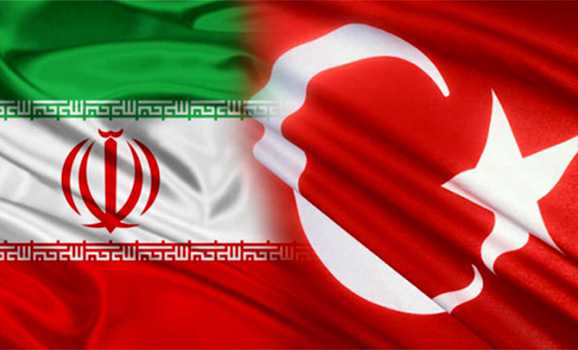The detention of 25 Turkish students who visited Iran on suspicion they had been used for spying and propaganda activities reveals how tense Iran-Turkey relations actually have become. (photo by naturalgasasia.com)

By: Tulin Daloglu for Al-Monitor Turkey Pulse Posted on October 4.
Since the Islamist-based Justice and Development Party (AKP) came to power in November 2002, there has been much debate about Turkey’s deepening identity crisis. Domestically, people are increasingly divided about the role of religion in political and civil life. Internationally, there have been allegations about Turkey’s tendencies toward moving away from its traditional Western alliance. While there is nothing surprising in all of this, since secularism has been one of the most contested components in this country’s political life since its establishment in 1923, what is intriguing is that the lack of debate about the strength of the people’s loyalty to Sunni traditions.
ABOUT THIS ARTICLE
Summary :
The detention of 25 Turkish students who visited Iran on suspicion they had been used for spying and propaganda activities reveals how tense Iran-Turkey relations actually have become.
Author: Tulin Daloglu
Posted on: October 4 2013
Categories : Originals Turkey Iran Security
Despite Turkish Prime Minister Recep Tayyip Erdogan government’s opening to Iran within the framework of its “zero problems with neighbors” policy, Turkey reminds us often that these two countries have never fought a war since the 1514 Battle of Chaldoran, where the Ottomans defeated the Safavid Empire. Although there may be a different reading of this historical record, too, one thing is clear: Since that battle, the Ottomans and the Persians have been divided as being the representatives of the Sunni and Shiite worlds, and they chose to keep their relationship at a controlled distance. That distance did not change after the foundation of the Turkish Republic from the ashes of a defeated Ottoman Empire.
So when Turkish authorities on Sept. 12 detained 25 Turkish students, ages 13-19, returning at the Gurbulak border gate from their 20-day study trip in Iran on the suspicion that they had been used for spying and propaganda activities, one needed to recall the long, historic perspective. Despite all the talks of brotherly bonding, there always has been a different underlying current between Ankara and Tehran. Although those students were quickly released after some questioning, pending further investigation, the leader of the group — identified only by the initials K.A. — was arrested. He said the Istanbul branch of Iran’s Camia-tul Mustafa University organized the study-course tour. Hurriyet Daily News reported that the university denies any involvement in this trip.
The students visited various universities, including sacred Shiite venues, over the 20-day course in Iran. They were introduced to the country’s leading religious scholars, and held conversations with them. They also studied political and religious courses. That is to say, from the Iranian perspective, they were shown utmost hospitality and taken good care of. From the perspective of Iran’s ambassador in Ankara, Alireza Bikdeli, these students are nothing but a bridge helping to strengthen the ties between the two countries.
“We have more than 3,000 Iranian students registered at our embassy starting their school year at the universities here,” Bikdeli told Al-Monitor. “Unfortunately though, there are only a few Turkish students in Iranian universities. And the latest news reports about the 25 students who visited Iran and were detained at the border gate were quite saddening.” The ambassador added: “If we also take the same path, and decide to interrogate our Iranian students about their stay here, we may end up bringing all our interrogation officers to the border with Turkey.”
So, why Iran does not take the same attitude and consider those Iranian students studying in Turkey as potential spies for the Ankara government? Or, why do the Turkish authorities worry about Turkish students visiting Iran, as if they can betray their country and faith as Sunni Muslims in a matter of 20 days, and move closer to the Iranian regime? Could there be a problem in Turkey regarding its loyalty to secularism and the Sunni faith?
This issue of arresting those 25 students actually begs answers to questions like the above, and none are easy to answer in some ways. But the truth could be quite simple and unpleasant to admit.
Tulin Daloglu is a columnist for Al-Monitor’s Turkey Pulse. She has also written extensively for various Turkish and American publications, including The New York Times, International Herald Tribune, The Middle East Times, Foreign Policy, The Daily Star (Lebanon) and the SAIS Turkey Analyst Report. On Twitter: @TurkeyPulse
via Turkey Suspects Turkish Students Who Visited Iran of Espionage – Al-Monitor: the Pulse of the Middle East.
